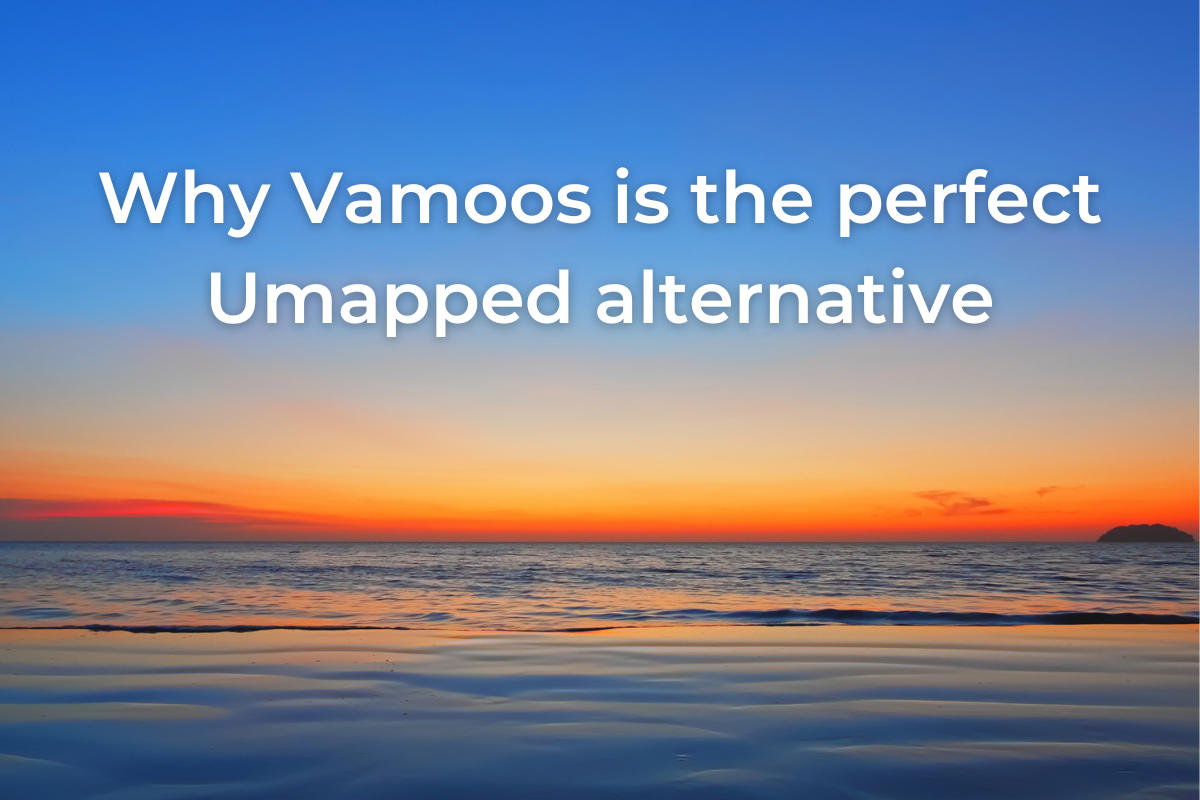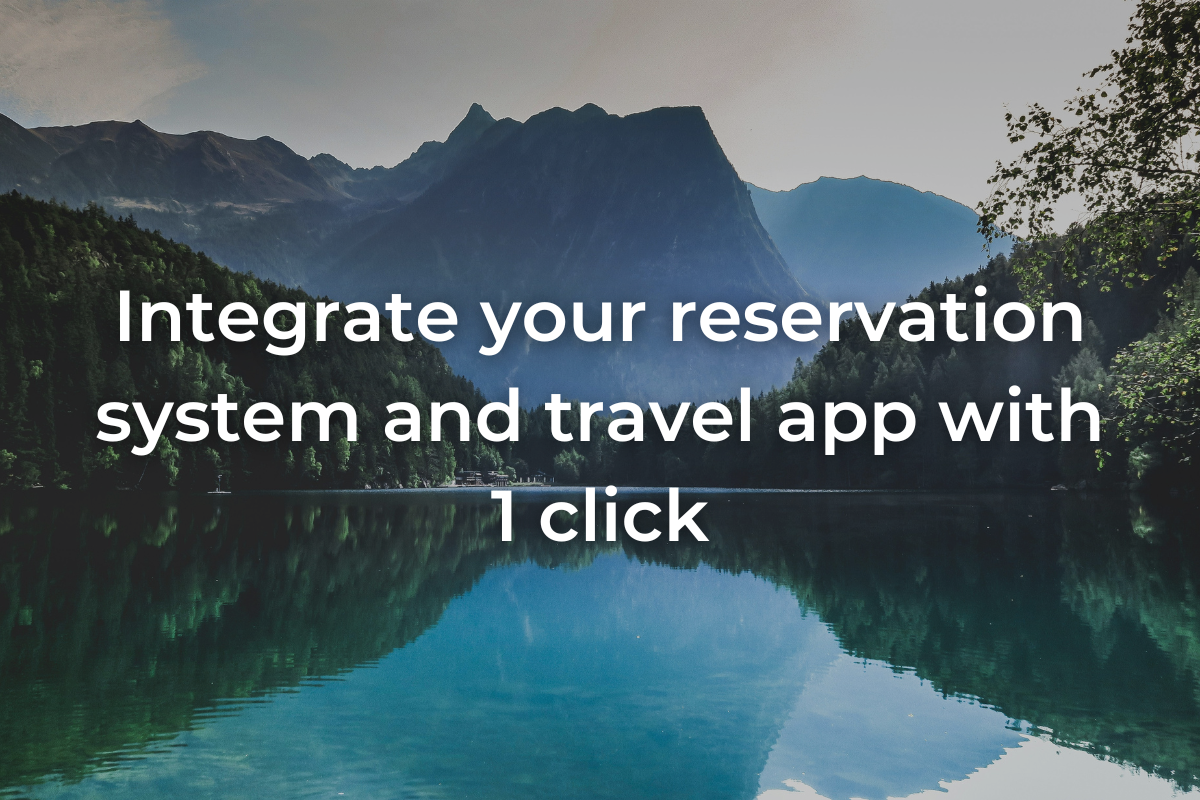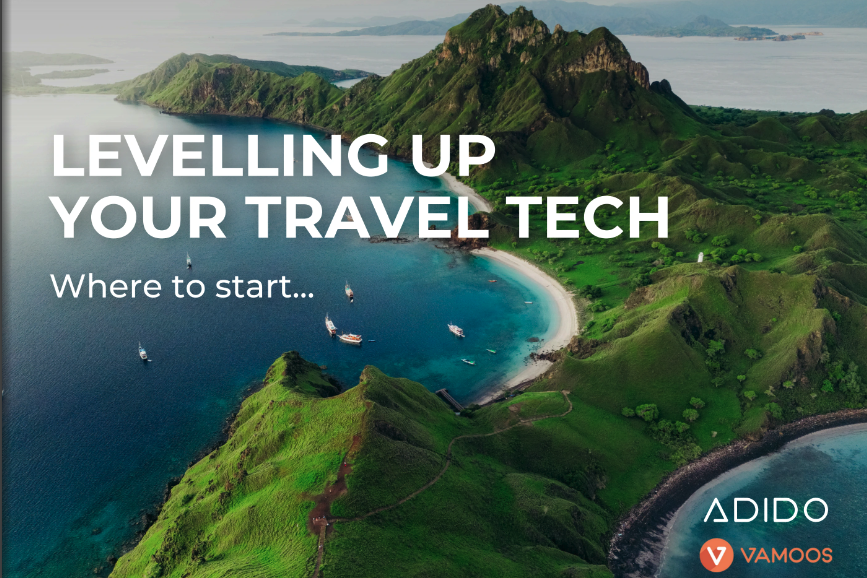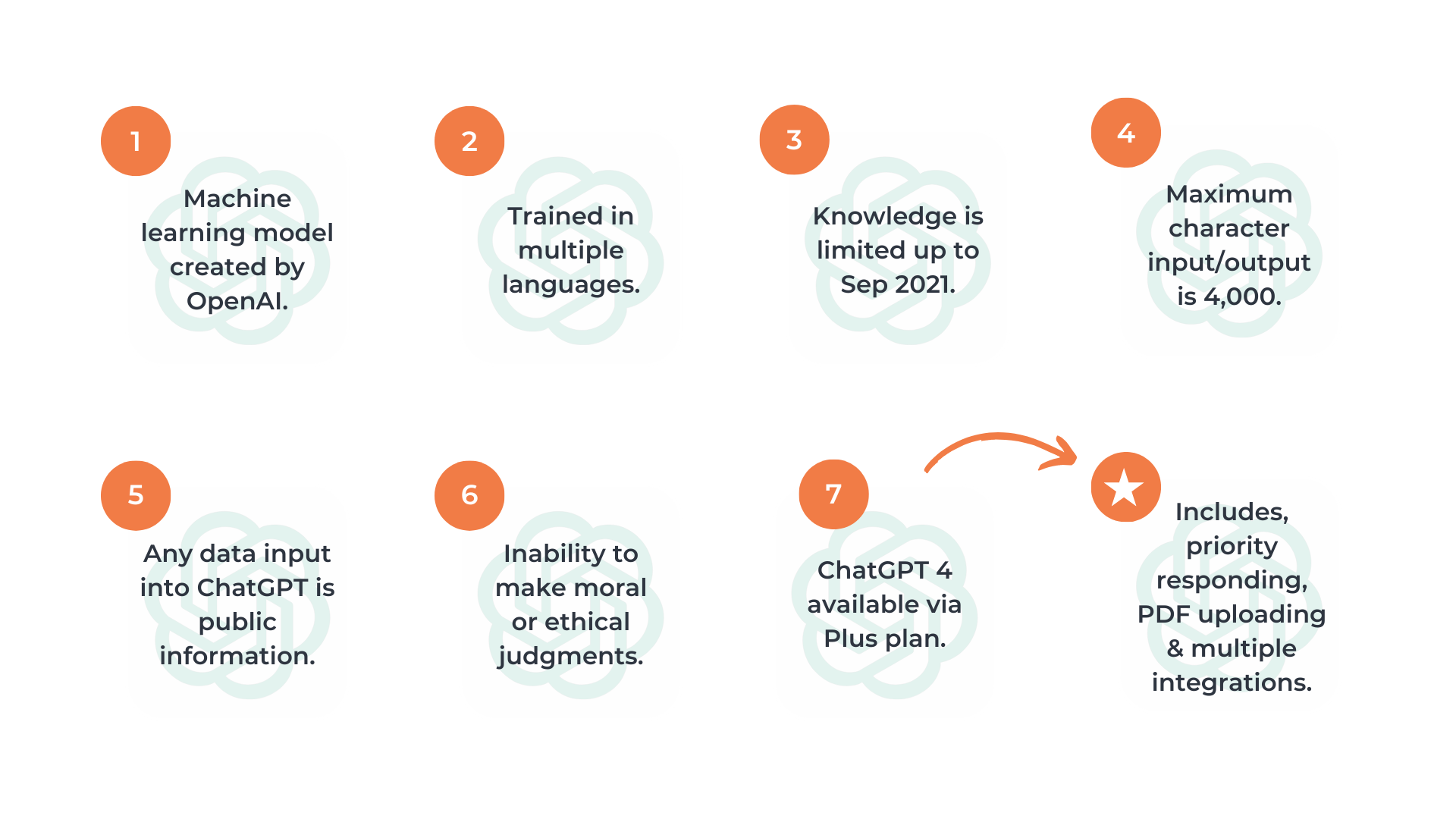
Welcome to the recap of our recent webinar: “ChatGPT in Travel: Strengths and Weaknesses”, hosted by Vamoos in partnership with AITO. We were fortunate enough to be graced with a panel of experts: Alisdair Luxmoore, Co-founder of Vamoos; Andy Headington, CEO at Adido, a travel specialist digital marketing agency; and Robin Weber Pollack, the owner and Chief Adventure Officer from Journeys International. Together, they shared insights, and real-life examples, and discussed the strengths and weaknesses of ChatGPT in the travel sector.
The rise of ChatGPT in travel
Download ChatGPT Cheat Sheet
Overview and capabilities
Released on the 30th of November 2022 as a groundbreaking technology, ChatGPT was officially and has since been making waves in the travel sector. Alisdair, the webinar’s moderator, provided a succinct overview of ChatGPT’s capabilities and limitations:
Predictive Text Generation: At its core, ChatGPT uses advanced algorithms to create sentences and paragraphs by predicting the next word in a sequence. This has wide-ranging applications, from automating customer service responses to crafting personalised travel itineraries.
Multilingual Capabilities: One of ChatGPT’s standout features is its ability to handle multiple languages, making it a highly versatile tool for global customer interactions and business correspondence.
Real-time Information: Alisdair discussed the exciting news that ChatGPT has recently been updated to access real-time internet information. However, it’s important to note that as of the time of the webinar recording, ChatGPT’s knowledge is up-to-date only until September 2021.
Privacy and Accuracy Concerns: While ChatGPT’s capabilities are undoubtedly impressive, it’s important to remember that with great power comes great responsibility. Alisdair pointed out that issues around privacy and data security still need to be fully addressed, who then went on to add – “It’s all public, is the simple fact there.” Furthermore, the tool’s predictive nature means it can sometimes generate information that is factually incorrect, emphasising the need for human oversight.
Practical applications
The webinar delved into the multifaceted ways that ChatGPT and other AI tools are revolutionising the travel industry. From automating tedious tasks to providing real-time information, below, we outline some of the key areas where AI, and ChatGPT in particular, is making a significant difference in travel.
Content Ideation and Proofing: Andy shared his experiences using AI tools, particularly for content ideation and proofing. For businesses, ChatGPT can be a valuable tool for research, personalising correspondence, and grammar checking. It can assist in the initial stages of content creation, to spark ideas and refine the language used, thereby saving time and resources. However, it’s important to edit and customise the content to match the company’s style and expertise before finalising.
Travel Itineraries: Robin emphasised the tool’s potential in drafting travel itineraries, especially when starting from scratch or converting non-native DMC proposals into more polished English. By using ChatGPT, travel companies can quickly draft customised itineraries that cater to individual client needs, thereby saving time and enhancing the quality of the travel experience.
Customer Service: Alisdair highlighted the growing adoption of ChatGPT in customer service platforms, including its integration into chatbots. He cited the example of Love Holidays, who successfully implemented AI technology in their helplines, cutting the required human resources in half. However, Alisdair noted that such significant resource reduction may not be directly applicable to smaller companies. Additionally, some enterprises have developed AI personas to handle customer queries, resulting in an astounding 80% increase in revenue. This brings up an ethical dilemma: should companies disclose that customers are not interacting with a human representative?
Download Pre-Travel Comms Guide: ‘From Booking to Boarding’

The growing potential of an AI research assistant
The webinar spotlighted a game-changing angle of ChatGPT—it’s not just a chatbot or a content creator, it’s also a whiz at research. Andy and Robin dove into how this unsung capability is a goldmine for the travel industry.
Speed and Efficiency: Imagine needing to collate a list of top-rated hotels in Bali with vegan-friendly options or scour the web for articles written by travel journalists on eco-tourism in Africa. With ChatGPT, these tasks can be performed with remarkable speed and accuracy, offering travel companies a unique competitive edge.
Customised Research: Robin highlighted that ChatGPT is particularly skilled in creating tailored research, particularly in generating locale-specific advice. This is especially valuable for travel companies dealing with diverse clients or non-native English speakers, enabling them to provide more targeted and unique travel experiences.
Multifaceted Applications: Andy went further to discuss how the tool could be employed beyond just travel specifics, such as content ideation and market research. By leveraging ChatGPT, businesses can stay ahead of industry trends, ensuring they remain at the forefront of innovation.
Credibility and Limitations: However, it’s essential to bear in mind the limitations, as highlighted by Alisdair. While ChatGPT is impressively efficient, the data it uses could be outdated, and the maximum input limit could be restrictive for more extensive research projects.
Find Out How to Win Against OTAs in a Digital World
General perspectives
The webinar offered a nuanced look at ChatGPT’s role in travel, covering everything from personalised itineraries to data privacy. Robin concluded that while ChatGPT is a powerful tool, it can’t substitute for human expertise. She stated, “ChatGPT can’t access what’s not on the internet,” emphasising that unique insights and relationships remain the domain of seasoned professionals. These are the “corners of the field” that only human experts can explore, offering travellers experiences that are truly one-of-a-kind. This key message provided attendees with a well-rounded understanding of how ChatGPT complements but doesn’t replace human knowledge in the evolving travel industry.
Questions & Answers
We didn’t have an opportunity to answer all of the questions asked during the webinar. Therefore, we’ve taken the opportunity below to answer any pending questions.
Q: Who owns ChatGPT?
A: ChatGPT is owned by OpenAI, a research organisation. They are the developers behind the GPT (Generative Pre-trained Transformer) series of language models, including ChatGPT.
Q: Can you tell me more about the updated data, both on the free and paid version?
A: Since ChatGPT now has the ability to search the internet, free users benefit from more current and accurate information, although there may be limitations on the number of queries or depth of search. On the other hand, paid users gain access to advanced features like in-depth research and complex query handling. Both free and paid plans would need to address new challenges around data privacy and the accuracy of the information retrieved. For the most up-to-date details, it’s recommended to check the latest announcements from ChatGPT.
Q: What is your favourite prompt for ChatGPT? You mentioned: “make me a list of…”. Which others do you use most often?
A: “Summarise this article for me.”
“Translate this sentence into [language].”
“Generate a script for [scenario].”
Q: TUI have trailed an experience product via ChatGPT through their app function to drive additional sales on experiences such as dinner reservations, tickets for events etc. Do you guys think this could be more bespoke by doing more AI profiles- As Robin is saying addition to backing more character to 21’s, and senior people?
A: Absolutely, customising AI profiles to cater to specific customer segments—such as younger travellers in their early 20s or senior travellers—can make interactions more personalised and engaging. For example, the tone, language, and types of experiences or recommendations offered could be tailored to fit the unique preferences and needs of each age group. This nuanced approach would not only add depth and character to the automated services but could also potentially drive higher engagement and sales.
In the travel industry, where personalisation can significantly impact customer satisfaction and loyalty, taking this kind of bespoke approach could be particularly advantageous.
Q: In what way is Vamoos integrating AI?
A: Although, we’re yet to integrate AI into our platform. We’re actively exploring potential AI tools to enhance workflows and offer added value to clients.
Q: Can you name a list of the AI tools you currently use so we can explore as well?
A: Midjourney for image generation.
Otter.ai for meeting transcripts.
Adobe Firefly for graphic design.
Grammarly for spelling, punctuation and grammar.
Q: What AI plug-ins do you use and could recommend for travel marketing?
A: ChatGPT’s plug-in, Ai PDF for document analysis and comprehension.
Ready to revolutionise your travel company with ChatGPT? Join the travel tech revolution with a free trial or book a meeting with our team to explore the future of travel through the Vamoos app.

Featured Articles

Why Vamoos is the perfect Umapped alternative
June 10, 2025 by adminUmapped have announced that on October 8th 2025, they will officially close their doors. If you’re a tour operator or travel company now looking for an alternative, there’s no need to worry. The Vamoos Travel App is the perfect replacement -and switching over is much simpler than you might think.

Integrate your reservation system and travel app with 1 click
May 15, 2025 by adminAre you juggling disconnected systems, copying and pasting trip details, or updating multiple platforms just to get one itinerary out? It’s error-prone, expensive and a huge investment of time. But it doesn’t have to be this way… Introducing the latest 1-click integration between the Vamoos Travel App and Spark Travel CRM & Reservation System, which is changing the game for travel companies.

Levelling up your travel tech: where to start
April 24, 2025 by adminIn today’s fast-moving travel industry, outdated tech is no longer an option. This guide explores why modular, API-first systems are the future – empowering travel businesses to streamline operations, deliver better client experiences, and stay competitive in a digital-first world.


Share: